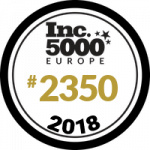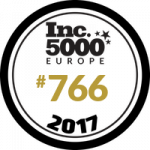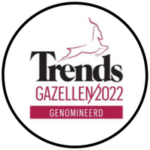Summary In the contemporary business environment, digital procurement is becoming increasingly popular and sought after by businesses around the world. The relationships …
How are firms leveraging technology towards procurement optimisation?
What is the foundation of procurement optimisation?
Procurement optimisation refers to the strategic process of improving and enhancing the efficiency, effectiveness, and overall performance of an organisation’s procurement, purchasing, and sourcing procedures.
The goal is to maximise value in each step of the procurement process whilst minimising costs and the risks associated with acquiring goods and services from external sources.
In essence, procurement optimisation involves simplifying processes, streamlining operations, utilising the best practices, and allocating the right type of resources in a way that aligns with strategic objectives.
What are the key components of procurement optimisation?
Procurement optimisation involves adopting a holistic approach to improve the efficiency, effectiveness, and overall performance of an organisation’s procurement processes. It aims to add value to your organisation’s products, services, quality, and reputation.
The key components of procurement optimisation include:

Strategic sourcing
Strategic sourcing is a procurement strategy that heavily focuses on the long-term goals of an organisation, emphasising the need for collaboration with suppliers to achieve mutual benefits. This goes beyond traditional purchasing methods and involves a structured approach towards purchase acquisition and sourcing.
This allows businesses to:
- Identify and monitor sourcing opportunities
- Curate and select the right suppliers
- Effectively negotiate supplier contracts


Supplier management
A strategic approach to managing a firm’s interactions with its suppliers and purchase sources, which involves maintaining collaborative, mutually beneficial relationships with key suppliers to create value in processes. This goes beyond transactional interactions and focuses on long-term partnerships that contribute to success.
This allows businesses to:
- Encourage collaboration to enhance supply management
- Constantly monitor and evaluate supplier performance
- Establish long-term, strategic supplier partnerships

Cost optimisation
Cost optimisation is an approach that organisations use to manage and reduce their expenses efficiently while improving overall business performance. This involves a systematic review of finances within the organisation and the implementation of measures to achieve savings without compromising quality or productivity.
This allows businesses to:
- Analyse costs and identify cost-saving opportunities
- Negotiate for better pricing and supply contract basis
- Recognise and implement cost-reduction plan


Risk management
Identification, assessment, prioritisation, and mitigation of risks that may impact an organisation’s objectives. The goal of risk management is to minimise potential negative impacts whilst maximising opportunities for the achievement of strategic goals. This is an integral part of corporate governance and strategic decision-making.
This allows businesses to:
- Identify potential risks and threats in the supply chain
- Develop and curate effective risk mitigation strategies
- Create contingency plans for potential supply disruptions

Process efficiency
Improving the effectiveness and productivity of a workflow or business process to achieve maximum output with the right balance of resource allocation whilst maintaining the quality of the final output. This is a continuous effort that aims to streamline and optimise production processes.
This allows businesses to:
- Streamline and achieve efficiency in sourcing processes
- Identify and eliminate bottlenecks and redundancies
- Implement continuous improvements in process workflows


Data analytics
Data analytics is the process of examining, cleaning, transforming, and modelling data to extract valuable insights, draw conclusions, and support data-backed decision-making. This is done through the use of various techniques and tools to analyse large volumes of data and uncover patterns, trends, correlations, and other meaningful information.
This allows businesses to:
- Analyse financial outflows, patterns, and trends
- Derive supplier performance analytics
- Benefit from predictive analytics for future operations
What relevance does procurement optimisation hold in business processes today?
The business landscape is dense, fiercely competitive and experiences a vast amount of changes daily. One way these factors can be contained is through process optimisation via procurement automation.
Ptimised procurement processes are likely to allow businesses to witness:
- Lower overheads across the organisation
- Increase efficiency and accuracy in processes
- Gain a competitive advantage in the industry
- Promote data-backed decision-making
- Optimise financial and resource allocation

Fighting the effects of inflation with sourcing and procurement consultants
Get assistance from Kronos Group to aid in a seamless transition into optimised procurement processes
Kronos Group is a recognised leader in consulting services for procurement management and digital transformation, We specialise in analysing, recommending, and facilitating the implementation of optimised digital strategies, processes, and technologies to help businesses realise their procurement potential.
Our expertise lies in guiding organisations through the complexities of digital transformation management, with a focus on streamlining operations and achieving predefined goals. We offer a comprehensive suite of skills tailored to enhance your procurement processes and drive towards transformative change in this world of contemporary business.
Reach out to us today, and let us embark on a journey to improve and innovate within your organisation.
Stay up-to-date on the latest insights on procurement, finance, and project management.
Summary Strategic procurement has become a necessity in today’s business world and organisations try to remain competitive. Having the right procurement strategies …
Summary The world of consulting has been undergoing a massive transformation and management consulting jobs are experiencing the impacts of these changes. …
FAQ
Procurement process optimisation refers to the strategic effort of enhancing and refining the various stages involved in the procurement process. The objective is to streamline the entire procurement lifecycle, from identifying needs to supplier relationship management to adding value while minimising costs, risks, and inefficiencies.
Optimising procurement involves a multi-faceted approach, but there are three key strategies that organisations often prioritise to achieve significant improvements. These are strategic sourcing, process efficiency, and data analytics for informed decision-making.
A procurement strategy encompasses various elements that guide an organisation in acquiring goods, and services or works efficiently and effectively. There are four key elements commonly that make up a comprehensive procurement strategy such as sourcing strategy, risk management, cost management and supplier relationship management.














